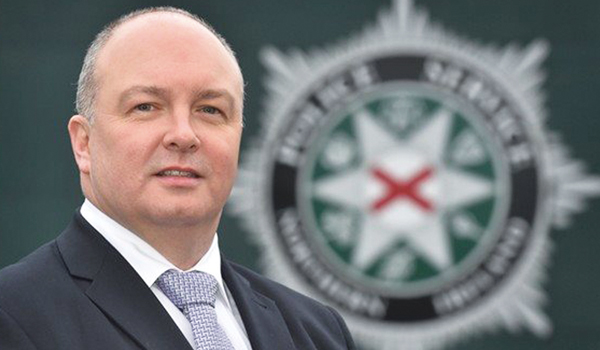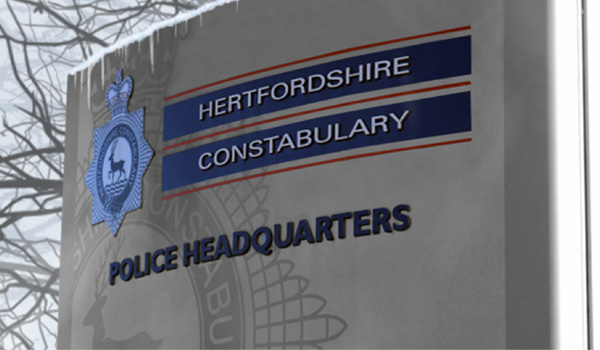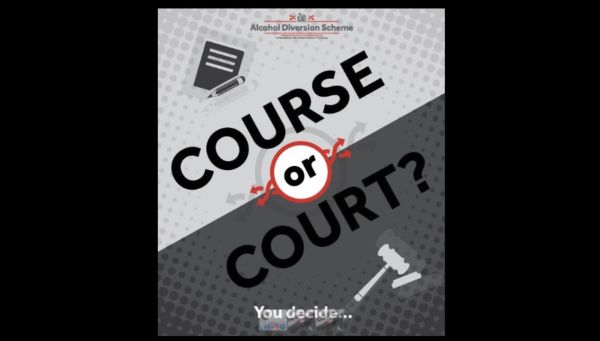First time more complaints against police handled by local resolution than investigation
More than half of all police forces in England and Wales have seen a fall in the number of complaints made by the public, according to the latest statistics released by the Independent Office for Police Conduct (IOPC).
The figures also revealed that, for the first time in a decade, forces are handling more complaints through local resolution rather than using lengthy and complex investigations. The time taken by forces when using this method is 72 days, compared to 158 days to complete a local investigation.
The Police Federation of England and Wales (PFEW) said the figures were a step in the right direction but cautioned it would continue to closely monitor investigation times.
Overall the number of complaint cases about the conduct of individual officers and the way forces are being run fell from 31,671 in 2017/18 to 31,097 in 2018/19, a reduction of two per cent. The number of complaints has reduced by 16 per cent since 2014/15.
The most common type of allegation made in a complaint remains ‘other neglect or failure in duty’ category, such as how officers responded to or investigated incidents. These allegations accounted for 41 per cent of all the allegations recorded in 2018/19.
The IOPC report, published on Tuesday (October 15), shows eight forces recorded over 20 per cent fewer complaints than the previous year. However, four forces increased the number of complaints they recorded by more than 20 per cent.
Responding to the findings, PFEW Conduct and Performance Lead Phill Matthews said: “On the whole this is a positive report; complaints and allegations against our members have fallen whilst there has been a shift over the past decade towards local resolutions and away from investigations depending on the seriousness of the allegation.
“Through local resolutions the matter can be cleared up quickly and directly with the complainant. Many complaints do not justify formal disciplinary or criminal proceedings, so this is an efficient way on ensuring officers aren’t dragged through lengthy and incredibly stressful investigations. But if an investigation is proportionate and necessary, it is reassuring to see forces are improving their investigation times”, he said.
“On too many occasions officers have been dragged through IOPC investigations which have gone on for unacceptable amounts of time. All that effort and money are wasted pursuing cases in a disproportionate and untimely fashion.
“This needlessly puts the officers concerned, and their families, through a protracted hell. In extreme cases officers have been prevented from retiring or left unable to move on with their lives or career. The impact on officers cannot be underestimated; it has a profound effect: mentally, physically and often financially, not just for themselves but also for the families they need to lean on.
“This does not happen in any other profession, which is why we are calling for an overhaul of the system to bring in a time limit of a year. If a case is worth progressing, then it should be done swiftly, for all involved. This is something we have been lobbying it about for many years.”
Out of the 21,764 allegations finalised by investigation – ten per cent were subject to special requirements, meaning the investigator believed the officer may have committed a criminal offence or behaved in a manner which justified the bringing of disciplinary proceedings. This is down from 13 per cent the previous year. Of the remaining investigated allegations not subject to special requirements (19,502), only 12 per cent were upheld by forces once finalised.
Mr Matthews also expressed concern over the standard of IOPC investigations as the report reveals with force led investigations, chiefs upheld just 12 per cent of appeals compared to IOPC led investigations where 38 per cent were upheld.
He concluded: “All in all the report is a positive step in the right direction and although the IOPC fails to include its own investigation times – we believe the IOPC is trying to address this and we have seen some evidence of progress and I’m pleased it is now publicly acknowledging that its timeliness needs to improve.”
Association of Police and Crime Commissioners Transparency and Integrity Lead, Julia Mulligan said: “This report shines a light on the work of local police complaints team up and down the country and gives local Commissioners a good insight into local practices. What it doesn’t do is give a huge amount of insight into the quality of work these teams do, and more importantly still, whether policing is learning any lessons from those cases. In future the IOPC need to do more to understand quality, both in terms of their own work but also their oversight of police complaints across the board.
“The number of appeals upheld by the IOPC continues to be too high, implying too many decisions being made at a local level are inappropriate. This is one of a number of reasons why I welcome Commissioner’s being able to take a much stronger role in the local complaints process if they so wish, refocusing the system on learning and improvement, and ensuring complainants get a fair hearing.”
IOPC Director General Michael Lockwood said: “The police hold significant powers that enable them to enforce the law. A fair, transparent and timely complaints process is important for ensuring the public can have faith in how police officers exercise these powers.
“This increased use of local resolution appears to accord with the refocusing of the complaints system on resolving and addressing systemic issues – forces are using a more timely, reasonable and proportionate way to address complaints that do not require a full investigative process.
“The system is not perfect though, and there are differences in how well forces handle complaints. This data is an important resource for the public and for helping police forces consider how they can improve their complaints handling. When viewed in isolation, each indicator gives only limited insight, but together they provide a picture of how the police complaints system as a whole is performing.
“To help forces use the complaints system to identify which areas of policing are generating complaints, we’ve overhauled how complaints are categorised and recorded. These changes will make it easier to identify learning and trends from 2020/21.”
The IOPC report also highlights initiatives by forces to deliver a good service in the initial handling of a complaint. At Cheshire Constabulary, dedicated complaints managers make recording decisions within ten working days in 97 per cent of complaint cases. In 2018/19, the IOPC upheld only two appeals against complaints not being recorded by this force.
Having missed a target of 80 per cent in four of the previous five years to record complaints within ten working days, the Metropolitan Police Service reviewed its processes and introduced a new database, resulting in 90 per cent of complaints being recorded within ten days. The force has also seen a decrease year on year in the number of non-recording appeals received – from 424 in 2013/14 to 208 in 2018/19, while the proportion of these appeals upheld by the IOPC reduced from 40 per cent (168) in 2013/14 to 28 per cent (58) in 2018/19.
In October 2018, Greater Manchester Police set up a new Assessment Team to record complaints and decide on initial actions. Its timeliness for recording complaints within ten days increased from 55 per cent in 2017/18 to 98 per cent in the final quarter of 2018/19.







